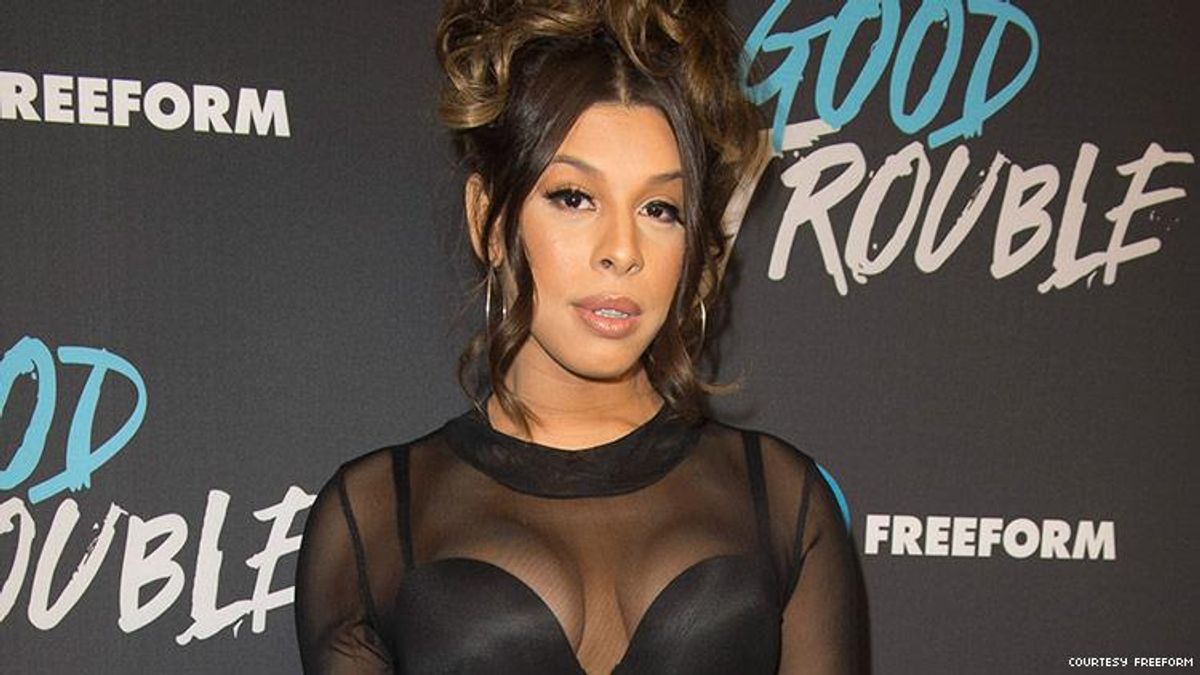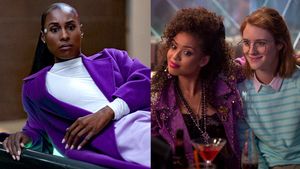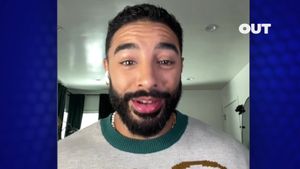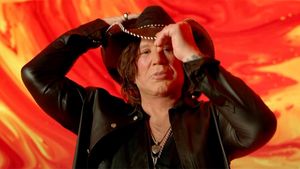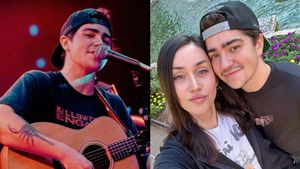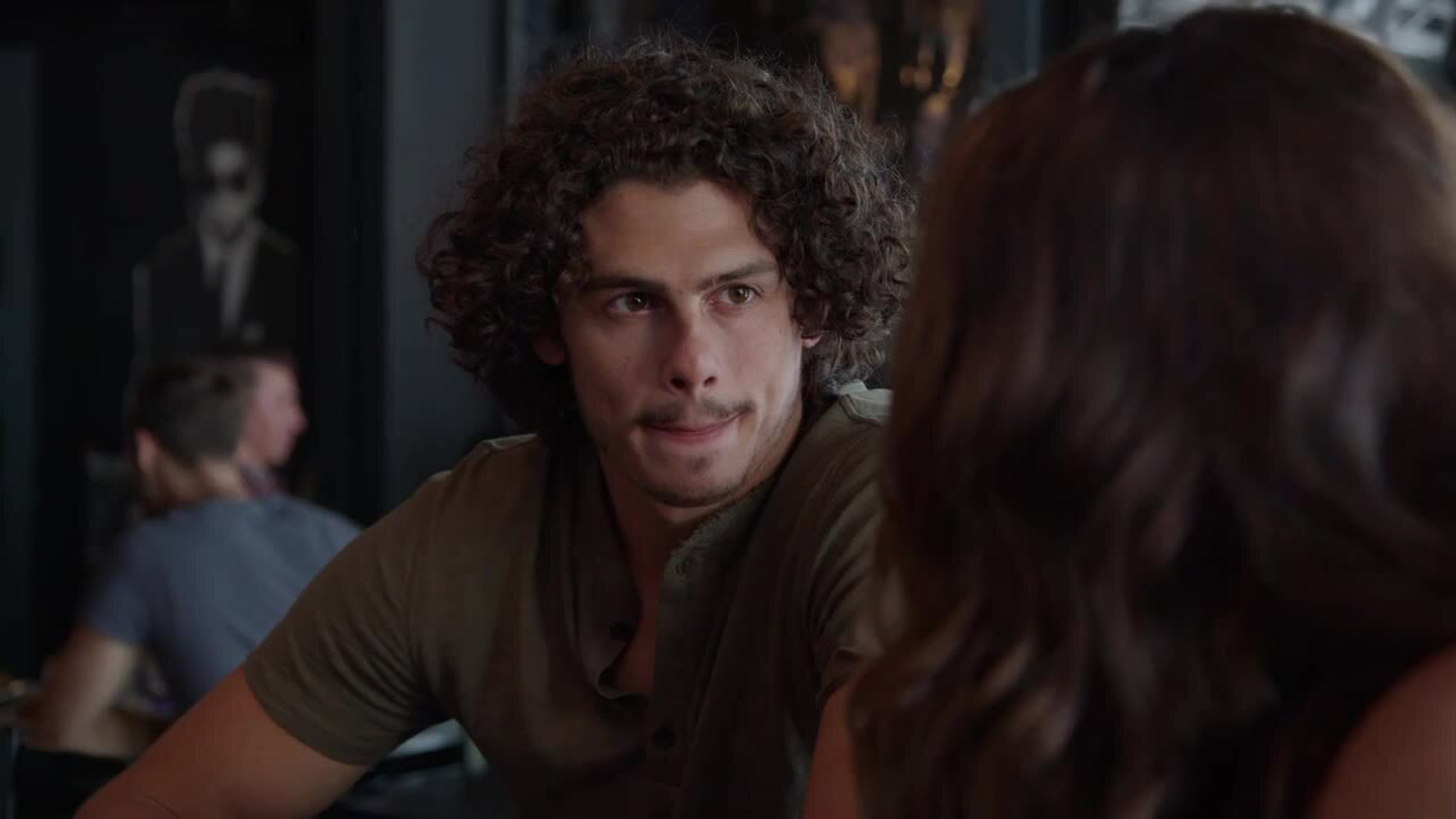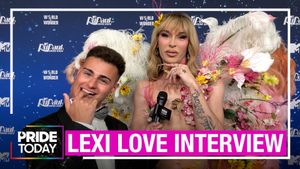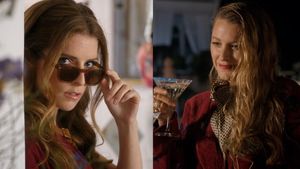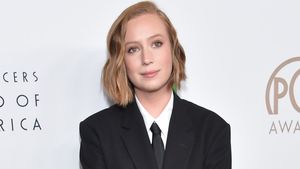Since actress, singer, and dancer Hailie Sahar began her career in her teens, there have been notable strides in terms of representation for transgender performers. And Sahar, who Pose fans will recognize as Lulu Abundance in that landmark series about '80s ball culture and who also appears on the very of-the-moment Freeform series Good Trouble, is in a unique position to help illustrate the strides made for trans people and the ceaseless discrimination they continue to face.
Pose, which premiered in the spring of 2018, and Good Trouble, which premiered earlier this month, both offer plum trans visibility while also focusing on how, on some fronts, little has changed for trans people between Pose's 1987 and today.
"The fact that Pose takes place in 1987 and the fact that Good Trouble is present day and we're still dealing with that level of discrimination. How far have we really come? It's really a testament to show what are we doing with people and what message are we really saying that America stands for," Sahar tells The Advocate. "Are we really the land of the free? Are we really the land of love, because if I'm doing a period piece in 1987 and I'm still being discriminated there and we're moving all the way to present day, it's the same thing and that's really sad."
But it's no surprise that Good Trouble, the spin-off of the intersectional series The Fosters from out executive producers Peter Paige, Joanna Johnson, and Bradley Bredeweg, would introduce a trans character that is fully realized and empowered while also highlighting barriers trans people still bump up against -- even in metropolitan areas like Los Angeles, where the series takes place.
The benchmark 2013-2018 series The Fosters centered on an interracial lesbian couple (Stef and Lena Adams Foster) raising biological, adopted, and foster kids. At its core, the show was about found family and unconditional love.
Its spin-off, which premiered in early January, fast-forwards to the post-college life of the Adams Foster sisters, Mariana (Cierra Ramirez) and Callie (Maia Mitchell). The sisters seek out a new family as they navigate the various personalities of the denizens of the Coterie, a funky downtown Los Angeles communal living space where they land. It's there that the series introduces queer characters in wildly underrepresented demographics with Alice (Sherry Cola), a lesbian who is not out to her Asian parents, and Gael (Tommy Martinez), a bisexual Latinx artist.
As the heir apparent to The Fosters, Good Trouble goes all in when it comes to queer visibility. So in the season's third episode, among several LGBTQ characters, viewers will meet Gael's trans sister, Jazmin (Sahar). The first scene between Jazmin and Gael is brief, but it's loaded with indicators about trans experience, their relationship, and Good Trouble's commitment to telling stories with authenticity.
Sahar describes a family-like atmosphere on the set of Good Trouble, where she says the cast, many of whom are big Pose fans, was incredibly welcoming. She also draws a through line from The Fosters to Pose to Good Trouble.
"I am a fan of The Fosters. What I like about it is it speaks to today's society and it actually pushes the narrative of including everyone. I love that about The Fosters, and so this [Good Trouble] kind of job and Pose --these are dreams come true for me because we get to speak truth," Sahar says. "I think that today's generation wants the truth. We don't want a watered-down version of a white picket fence. We want to know what's really happening in the world."
In the exclusive clip below from Good Trouble's upcoming episode, Jazmin (who recurs on the series) explains to Gael that she's experiencing discrimination at her retail job despite pulling in the highest sales.
"I got the message. They don't want me there. Especially my manager, and he's a gay guy," Jazmin says.
"Apparently, T is optional when you're LGB," Jazmin tells her bisexual brother.
It's a short exchange, but in a matter of a few lines, the scene gets to the crux of the various kinds of privilege among LGBTQ identities.
"I think that when anyone's ever been marginalized and discriminated against and they finally get some level of acceptance, I think that people don't want to lose that acceptance that they've gotten from the cisgendered world," Sahar says of cisgender lesbian, gay, and bisexual people who haven't fully embraced trans identities. "A lot of times, what has happened is they will sometimes turn their backs on others because they don't want to lose that level of privilege."
While Sahar says that she has experienced pushback from cisgender queer people, the buoyant actress is magnanimous about what she's endured as a woman of trans experience and hopeful for a more united future.
"My personal experience ... I've definitely experienced that within the community," Sahar says. "But it's important for all of us to just understand that we're all just human and we all just need love. There is no superior race or gender or anything like that."
Watch an exclusive clip from the Good Trouble episode airing Tuesday on Freeform.
